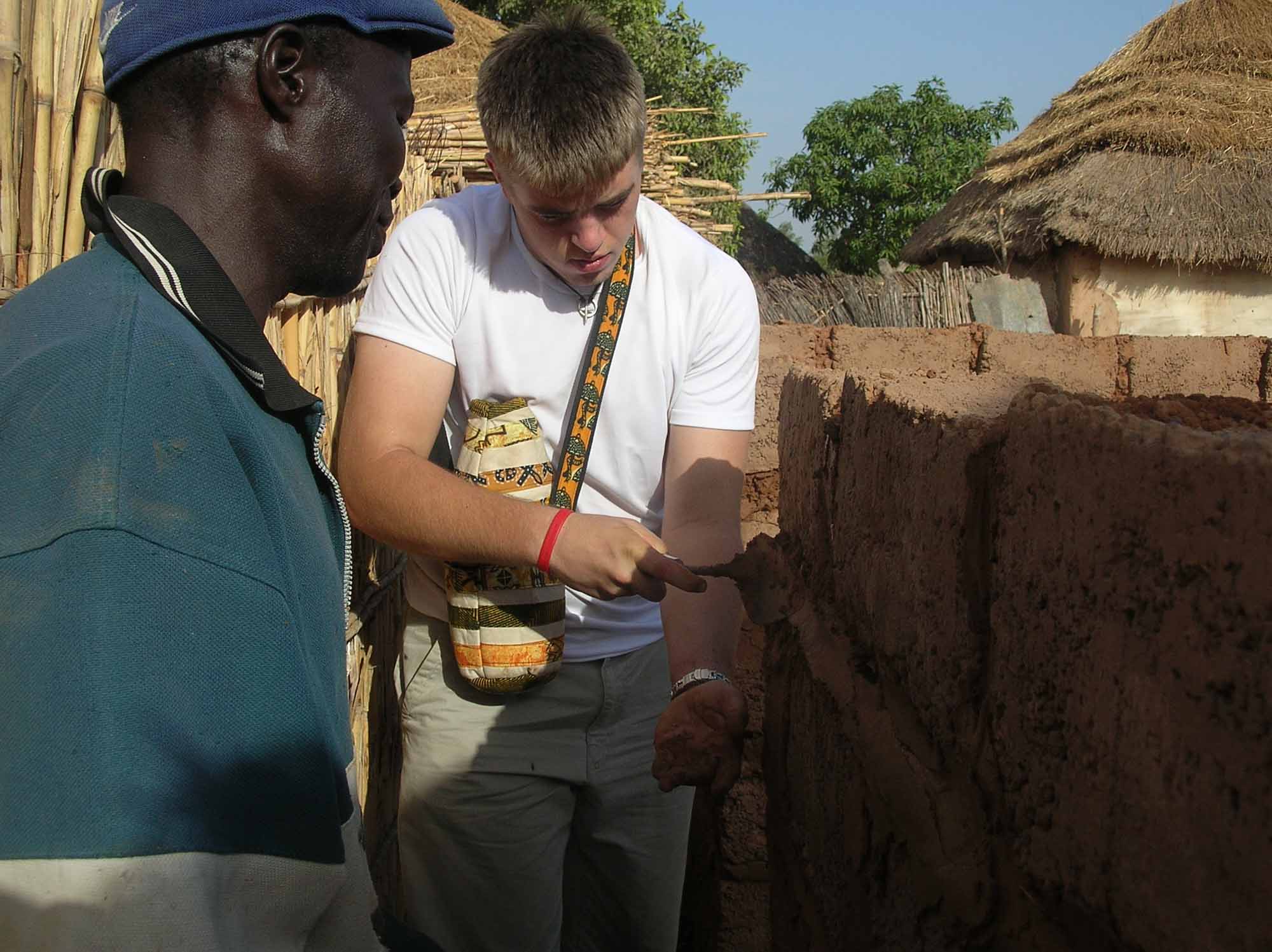
EDITORS’ NOTE: This year’s international missions emphasis in Southern Baptist churches focuses on missionaries who serve in West Africa as well as churches partnering with them, exemplifying the global outreach supported by Southern Baptists’ gifts to the Lottie Moon Christmas Offering.
SENEGAL, West Africa (BP)–Cramped in a pitch-black, mud hut while rain poured outside, Ouachita Baptist University students Austin Wadlow and Tyler Butler talked with the Konyagui man for hours.
They searched Scriptures by flashlight to disciple the man with the sprouting gray hairs and infectious smile. He had been hungry for more teaching since the last students from Arkansas came through his village three months earlier. The previous team named him Nick — short for Nicodemus — because of his questions about being born again.
“This guy, Nick, came up and had been studying his Bible like crazy,” Wadlow said. “He had all kinds of questions about God. It was awesome because he didn’t see the rain or the dark as a reason to wait for later.”
Wadlow and Butler built on the work of the previous Ouachita Baptist team as they discipled Nick to a new level of faith.
That’s exactly what the Arkansas Baptist Collegiate Ministries hoped would happen when they signed an “engagement agreement” with the International Mission Board to send teams of college students to serve among the Konyagui people for the next three years. Each trip is designed to build on the last to eventually evangelize, disciple and form a church among the Konyagui without the benefit of a full-time missionary on the field.
The two men on the first mission trip were college ministers who, with the help of a missionary, scoured the African bush seeking Konyagui villages. They learned Konyagui means “people of the bees,” because they launched swarms of stinging insects during tribal warfare of centuries past.
These days, the Konyagui are known as mild-mannered, hard-working farmers living in Guinea and Senegal. Most are Catholic or Muslim, but newborn babies are still adorned with the fetishes of an animistic faith.
Wadlow, a recent Ouachita Baptist graduate, and Butler, a sophomore, came on the second trip to build relationships with the Konyagui.
They worked long afternoons in the hot, sub-Saharan sun alongside the Konyagui men, trying to garner respect for themselves and for those Arkansas students who will follow. Somehow communicating through a language barrier, Butler helped build a mud-brick house while Wadlow thatched a roof with hay and cleared some fields for planting.
“We spent 24 hours a day sweating,” Wadlow said.
But this three-week trek wasn’t like many college mission trips that aspire to leave behind new buildings or other material possessions.
“Honestly, we spent 85 percent of our time sitting around and talking and drinking ataya,” Wadlow said. Ataya is strong African tea brewed hot while the men enjoy long afternoon breaks. That’s where the Arkansas students were able to share Bible stories with the help of an interpreter and a couple of missionary traveling companions.
The team also spent time playing with children and learning tribal customs at a village festival.
The Arkansas team that followed Wadlow and Butler this past summer traveled with field missionaries, but teams after that will be on their own. They’ll work with the contacts and information gathered by the teams before them.
“This is not just a casual mission trip,” said Wadlow, who came to realize the need for a long-term strategy to reach the Konyagui. “It’s not about getting as many people as possible to come from your BSU (Baptist Student Union). It’s about sending what is needed for the Konyagui.”
He said students and others who come shouldn’t be lightweight believers seeking a trip solely to make memories, because new believers like Nick want to be challenged to grow.
“God’s spoken to me about revering His Word,” Wadlow said. “When [the Konyagui] see we respect the Word enough to know it without our Bibles, it means so much to them.”
–30–

















